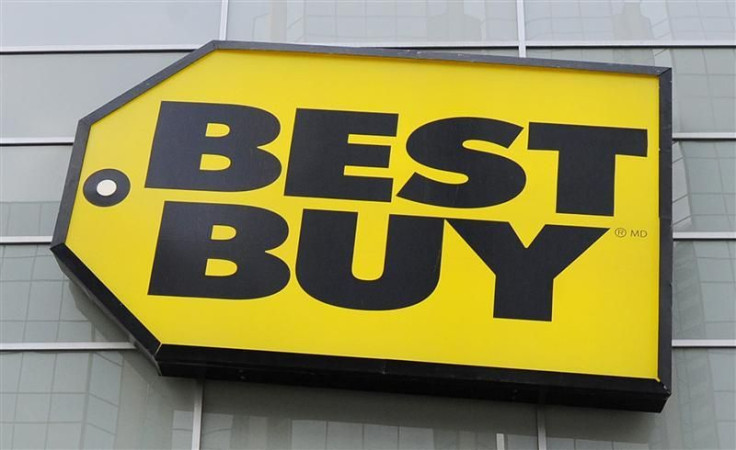Best Buy Private Equity Bid: Who Has The Bucks For A Big Deal?

Can Richard Schulze, the 71-year-old founding CEO of Best Buy Co. (NYSE: BBY), put his money where his mouth is?
He has until Oct. 25 to prove it.
By then, he may have to come up with as much as $9.6 billion to finance his bid to take the Richfield, Minn., electronics chain private.
Schulze owns 19.6 percent of Best Buy, which he founded in 1966 and last ran as CEO in 2002. But he wants to take the company private, so he'll need to tap the private equity giants for the cash to bid for the rest, as well as their guarantee of support while he manages the chain, which would be loaded with new debt. He'd also have to pay off current bondholders.
To unload all the new debt, a new Best Buy would have to be a cash machine, starting almost from day one.
That's how it works in the private equity world invented by people like Republican presidential nominee Mitt Romney, the founder of Bain Capital, and people who remain in the field such as Henry Kravis, Leon Black and Leonard Green, all similar private equity giants.
Schulze has approached their respective vehicles -- KKR & Co. L.P. (NYSE: KKR), Apollo Global Management LLC (NYSE: APO) and Leonard Green & Partners, L.P. -- the Wall Street Journal reported.
This week, Schulze signed a "standstill agreement" with troubled Best Buy, which reported second-quarter net income fell 91 percent to only 4 cents a share. It also threw out its CEO and recruited a new one, Hubert Joly, from Carlson Cos., the private group whose brands included Radisson Hotels and TGI Fridays restaurants.
The agreement means Schulze and the private equity bigwigs get to see Best Buy's books in order to prepare a bid.
Given that the shares are trading close to their 52-week low -- closing Wednesday at $18.21, up 35 cents -- any new bid will have to be much higher. The company now is worth $6.2 billion.
The ex-boss, a billionaire in his own right, previously said he'd offer between $24 and $26 a share.
The Best Buy board, which includes a former CFO of McDonald's (NYSE: MCD), the No. 1 global fast food chain, would likely accept a reasonable offer, especially one with a premium to the share price. While there might be some back-and-forth between the parties, general business judgment rules require they accept a high offer.
Private equity firms have dabbled in retail before with mixed success:
KKR, along with Goldman Sachs Capital Partners and Citigroup Private Equity, purchased Goodlettsville, Tenn.-based Dollar General Corp. (NYSE: DG) for $7.3 billion in 2007. After two years of extensive auditing and shutting down more than 400 poorly performing stores, the company went public again, opening at $13.93 a share.
Shares of Dollar General closed Wednesday at $48.54, valuing the company at $16.1 billion.
KKR owns 19.4 percent of the company and Goldman is the second largest shareholder at 7.3 percent.
Black's Apollo Global placed a big bet with its $1.3-billion takeover of Linen 'n' Things of Clifton, N.J., in 2006. It collapsed in bankruptcy in 2008 amid blistering competition from Bed Bath & Beyond Inc. (Nasdaq: BBBY) of Union, N.J., as well as the economic downturn.
Leonard Green, founded in 1989, has taken over many retail companies, including Kash & Karry Food Stores, and has investments in BJ's Wholesale Club, a direct competitor of Best Buy.
So it's likely Schulze and the private equity teams know what to look for. If a deal isn't made in late October, he can try again in early January, Best Buy said.
Then there are other obstacles. Consumers increasingly turn to online sites headed by Amazon.com Inc. (Nasdaq: AMZN), the No. 1 e-retailer, and even regional giants like Abt Electronics in Northbrook, Ill., to buy electronics. Or they patronize other retail sites like Wal-mart Stores Inc. (NYSE: WMT).
Best Buy does, however, have a thriving service unit in its Geek Squad, which might be a profitable business if spun off.
To date, hedge funds and activist investors like Carl Icahn and William Ackman haven't acquired major stakes in the company, a signal they don't believe a deal is forthcoming.
If a Best Buy deal emerges, it could be the largest takeover of the year, beating out the $7.15 billion acquisition of El Paso Corp.'s oil and gas exploration and production unit by a consortium of equity partners led by Apollo, Riverstone Holdings LLC and Access Industries Inc.
Nor would it be a record high for the retail sector.
Cerberus Capital Management, L.P., took Boise, Ida.-based Albertson's LLC private in 2006 in a $17.4 billion deal. The supermarket chain is still private.
© Copyright IBTimes 2025. All rights reserved.




















